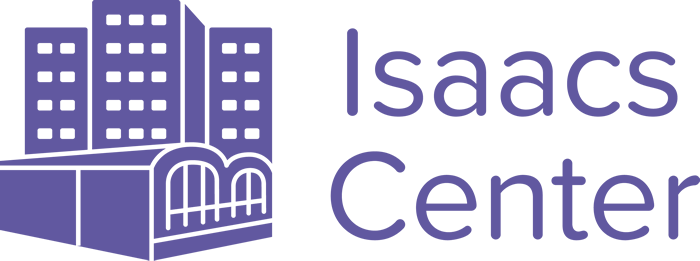Gregory J. Morris, Executive Director, Stanley M. Isaacs Neighborhood Center – I’d like to thank Chair Margaret Chin for her leadership and the opportunity to provide testimony. I’m Gregory J. Morris, President and Executive Director of the Stanley M. Isaacs Neighborhood Center, a multi-service nonprofit organization embedded within four public housing developments in Upper East Side Manhattan and East Harlem. We will be focusing our testimony today on pressing issues facing older adults related to food insecurity, community health as related vaccine distribution, air conditioning and re-opening spaces, discretionary City Council funding, and the upcoming Senior Center and NORC RFPs.
We’d like to start with food security, as it has been one of the primary focal points of the pandemic era and presents a great challenge for our sector. The City’s Get Food program launched in the wake of the pandemic shut downs. We are thankful to live in a city that would institute such a vast program to feed seniors in an emergency such as it is. But the roll-out unnecessarily left many seniors behind for months, which we strongly believe could have been avoided if the City collaborated with community centers like ours to identify and serve seniors in need. We had the names; we couldn’t get them added for weeks. We now have over 350 clients still relying on the Get Food program, instead of receiving healthy, balanced meals from our kitchen. Conversations began about the new Direct Meals 2 program in the Fall, and we are still waiting. We ask for the Council to work with Dept for the Aging (DFTA) and Seniors Centers, to get this program funded and off the ground, so we can cook and provide healthy meals to our members again, and deliver them safety to their doors until it is safe to return to the space. Get Food was intended as an emergency program, not the sole source of nutrition one year later.
We know that seniors are among the most vulnerable and disproportionately impacted throughout this public health crisis. Since the onset of the pandemic, the Isaacs Center Meals on Wheels program has been at the forefront of feeding New York City’s most underrepresented and oppressed population. The Isaacs Meals on Wheels program has continued to serve its homebound clients daily with no schedule disruptions. We were contracted by the New York City Department for the Aging to deliver 132,236 meals between July- December of 2020. Due to the health crisis, our clientele increased by 18%. The Isaacs Meals on Wheels program delivered 154,067 meals between July-December 2020. An overage of 21,971 meals totaling the sum of $185,654.95. The Isaacs Center has yet to be reimbursed by DFTA. We have been relying on private dollars to support this deficiency. We are asking for the council’s support and advocacy to assist the Isaacs Center in receiving reimbursement from DFTA.
On the top of everyone’s mind is the vaccine roll-out and the outrageous hoops seniors have to go through to obtain appointments. Programs like ours are spending hours of wasted time and resources attempting to find appointments for seniors in their neighborhoods that largely don’t exist. Every day we hear confusing and disjointed news coverage about increasing access for seniors, but little has changed as we move in to the Spring. Our Center has approximately 1700 members, and so far, only 100 have received a first dose. The most frequent request from our seniors, including those hesitant about the vaccine, is to offer the shots at their senior centers or in their homes. Community centers like ours are ready and willing to work with government entities to make this happen, and need to be given access to appointments to assure seniors are able to access appointments in the communities where they live.
As we get closer and closer to the hot weather we are asking for the Council’s support and advocacy in relaunching the Get Cool air conditioner programs for seniors and families in need, and that it is done in collaboration with community centers. Last year this was a program administered by NYCHA, Department for the Aging (DFTA), and Dept of Health (DOH). It was successful in that it provided air conditioners to thousands of seniors who could previously escape the summer heat at their senior center, and were stuck inside. However, the program didn’t allow for programs like ours to add names of residents we knew to be in need until well into the summer, leaving many in need behind. Many didn’t receive units until nearly Fall. Our Center had to purchase 70 AC units for seniors who were left out at a cost to our program. We believe the Get Cool program will be essential again this year and should be relaunched as soon as possible, and that the rollout include community centers to identify those in need.
We would also like to take this time to request the council fully restore the Council Initiatives that has been cut from this year’s budget, specifically the Health Aging Initiative. Senior Center and NORC programs like ours rely on these initiatives to provide regular programming in support of physical health and exercise, arts and culture programming (often large-scale events in-person and now on zoom that bring the greater community together to celebrate culture and diversity), and health promotion groups and services such as nursing, vaccines, and other essential services.
The challenges we face as we grow older are vast. We at the Isaacs Center are committed to working with the City Council to maximize our sector’s potential to serve our aging communities with the supports and dignities that they deserve. I appreciate the time today and the opportunity to provide this testimony. I am happy to answer any questions that the committee may have.
